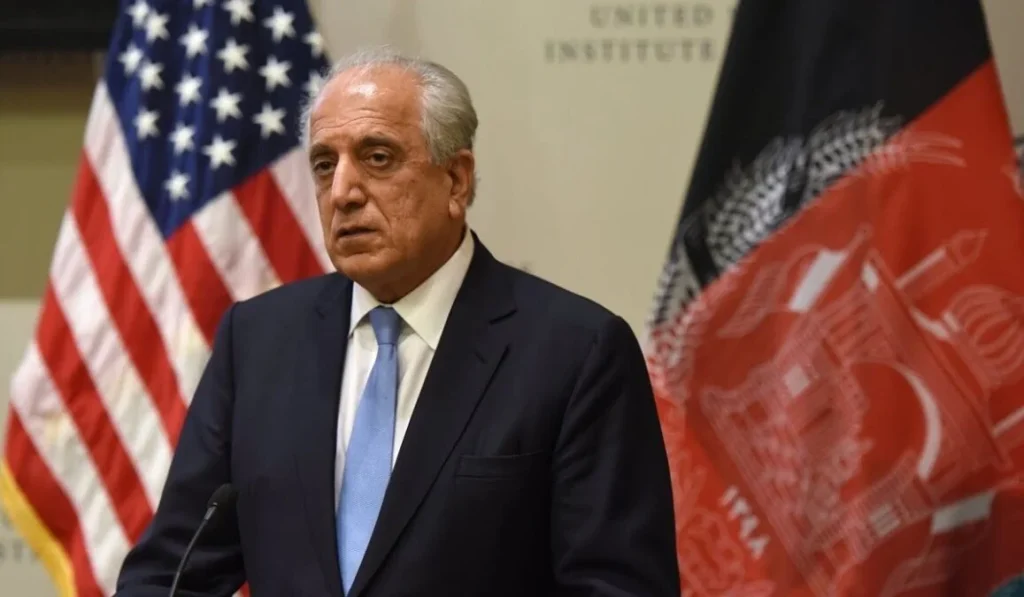The academic “Towards Unity and Trust” dialogue in Islamabad, organized by the South Asian Strategic Stability Institute (SASSI) University, was intended to foster peaceful engagement between Pakistani and Afghan civil society representatives. Instead, it has been derailed by a concerted misinformation effort spearheaded by former U.S. envoy Zalmay Khalilzad. His public assertions transformed an inclusive academic forum into an alleged Pakistan-backed plan to undermine Afghanistan’s current government. The resulting propaganda threatens to erode years of fragile trust between the two nations at a critical juncture in their diplomatic relationship.
Khalilzad’s Distorted Narrative of the SASSI Dialogue
Khalilzad’s tweet claimed that Pakistan was hosting a gathering of “Afghan exiles and politicians opposed to the Taliban,” suggesting they intended to coordinate the “violent overthrow” of the Afghan authorities. He went so far as to label the conference “hugely unwise and an intended provocation,” accusing Pakistan of immature and irresponsible behavior. This depiction was quickly amplified by certain Indian media outlets, which spun unsubstantiated rumors that Pakistan might soon open offices for anti-Taliban resistance groups on its soil. Such allegations directly contradict SASSI University’s stated objectives and reveal the opportunistic nature of Khalilzad’s criticism.
Khalilzad’s Controversial Track Record in Afghanistan
Irony surrounds Khalilzad’s polemic. His tenure as U.S. Special Representative for Afghanistan Reconciliation in the Doha peace process has drawn widespread critique for contributing to the collapse of the previous Afghan government. Analysts have argued that his negotiations inadvertently reinforced the Taliban’s legitimacy while sidelining important Afghan stakeholders. By facilitating a hastily crafted withdrawal agreement that neglected key power-sharing arrangements, Khalilzad’s approach is viewed by many as manipulative and exclusionary. His current campaign against the SASSI dialogue thus appears less a matter of principled concern and more a strategic deflection from past misjudgments.
Civil Society’s Role in Building Confidence
Academic and civil society platforms like the SASSI conference play a crucial complementary role alongside official diplomacy. Such Track II dialogues create neutral spaces where women’s rights activists, community elders, journalists, and former policymakers can address core issues, inclusive governance, refugee repatriation, and human rights, without the constraints of formal state negotiations. These forums help build interpersonal trust and generate grassroots momentum for sustainable peace. Attempts to politicize this constructive engagement risk undermining emergent cross-border relationships and jeopardizing the delicate progress achieved since the Taliban assumed power.
The Broader Diplomatic Landscape
The propaganda campaign emerges at a pivotal moment. On August 20, 2025, Kabul will host a trilateral meeting of foreign ministers from Pakistan, China, and Afghanistan, the first of its kind under the current Afghan administration. Deputy Prime Minister and Foreign Minister Ishaq Dar will join China’s Wang Yi and Afghanistan’s Amir Khan Muttaqi to discuss counterterrorism cooperation and the extension of the China-Pakistan Economic Corridor (CPEC) to Afghan territory. This diplomatic milestone underscores Pakistan’s proactive stance on regional stability and security collaboration. Yet by casting doubt on Pakistan’s intentions just days before these talks, Khalilzad’s narrative threatens to distract from substantive policy discussions and sow discord among partners.
Debunking the Resistance Office Myth
Contrary to Khalilzad’s assertions, Pakistan’s government has not signaled any plan to host permanent offices for anti-Taliban resistance groups. Official statements from the Ministry of Foreign Affairs have reaffirmed Pakistan’s policy of non-interference and support for an Afghan-led reconciliation process. Pakistan’s consistent engagement with the Taliban government, including the recent elevation of diplomatic missions and agreements on refugee management and cross-border trade, demonstrates a constructive approach aimed at fostering mutual respect and cooperation. The rumors of resistance offices thus lack a factual basis and serve only to inflame suspicions.
Strategic Timing and Ulterior Motives
The timing of Khalilzad’s allegations, amplified by selective media outlets, suggests ulterior motives rather than genuine concern for Afghan stability. By undermining Pakistan’s credibility on the eve of high-level trilateral talks, this misinformation distracts from collaborative efforts to address shared challenges such as terrorism, drug trafficking, and infrastructural connectivity. It also diverts attention from Khalilzad’s contested legacy in Afghanistan, creating a smokescreen that absolves him of scrutiny for the shortcomings of the Doha process.
Moving Beyond Propaganda
If the region is to overcome decades of mistrust and conflict, constructive engagement must prevail over divisive propaganda. Pakistan’s facilitation of both state-level diplomacy and civil society dialogues offers a dual-track model for confidence-building. Rather than allowing Khalilzad’s misrepresentation to derail these initiatives, stakeholders should reaffirm their commitment to transparent, inclusive dialogue. Civil society forums and official negotiations alike serve as vital channels for addressing the complex political, security, and humanitarian issues that define Pak-Afghan relations.
In the face of disinformation, the solution lies in greater openness, fact-based discussion, and cooperative action. By recognizing the academic nature of the SASSI dialogue and focusing on shared goals rather than sensationalist claims, Pakistan and Afghanistan can continue their journey toward sustainable peace and regional stability.

